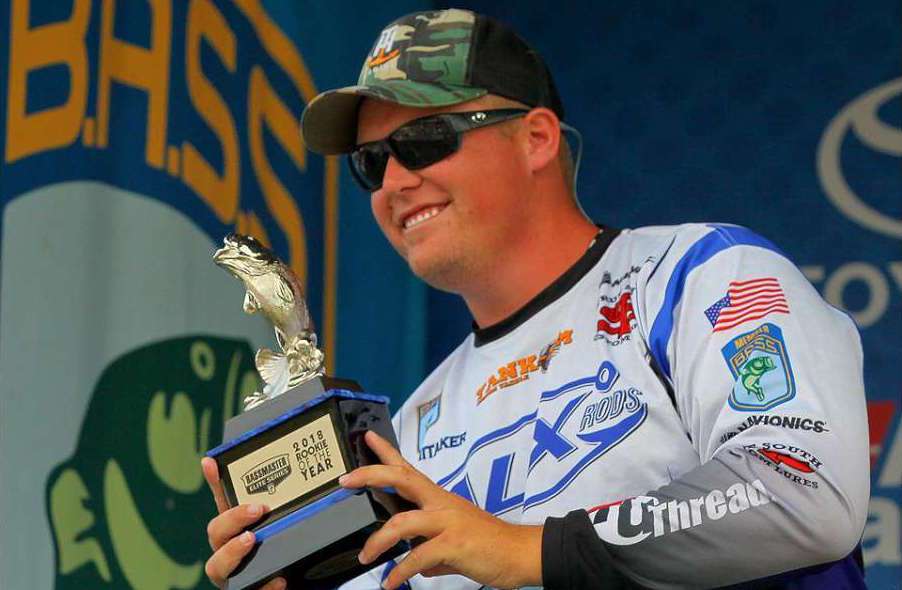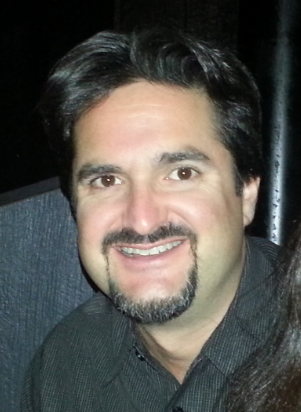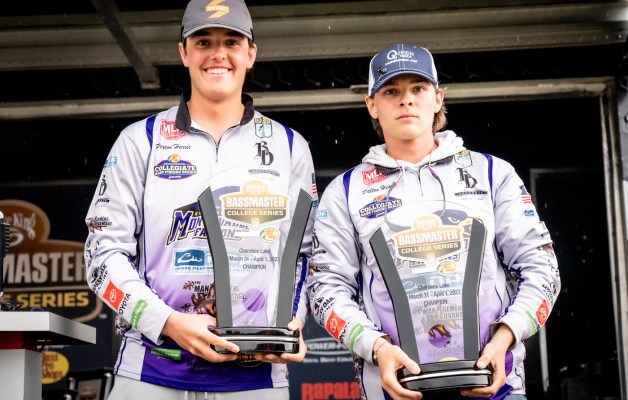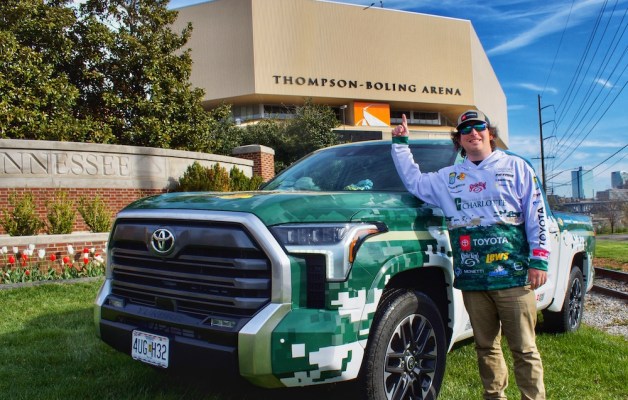
Brandon Card
Brandon Card was one of the hottest young sticks in his home state of Tennessee when he joined the University of Kentucky bass fishing team back in 2005.
Card readily admits it was not the easiest of transitions.
Instead of fishing the east Tennessee lakes he knew so well, Card suddenly found himself making road trips to tournaments in unfamiliar states. A championship tournament in Texas was “completely different,” he said, and fishing grass lines on the Arkansas River was “a foreign concept.”
An Ultimate Match Fishing Championship event on Oneida Lake in upstate New York in 2007 also had him scrambling, but Card finally figured out the smallmouth bite and won the tournament.
“On the first day of practice, I thought ‘What the heck am I doing?’” Card said. “I barely got by the first round. But I learned a bit that day, and a bit more on the second day and the third day. By the time of the championship round, I thought ‘Wow, I’m starting to figure these smallies out.’”
That win was a springboard for Card, who graduated to Bassmaster Open tournaments after four years of fishing for Kentucky. He finished second in the Bassmaster Southern Open standings in 2011, which earned him a spot in the 2012 Bassmaster Elite Series.
Card was the first college angler to qualify for the highest level of pro bass fishing, and he’s one of 15 of the 75 anglers competing in the 2019 Elite Series who cut their teeth in the college ranks. The 32-year-old Card, who is entering his eighth season as an Elite, said the experience he gained fishing in college certainly helped prepare him for professional angling.
And he has the 2012 Bassmaster Rookie of the Year trophy to prove it.
“If I wouldn’t have started fishing collegiately, I never would have traveled like I did at that young age,” Card said. “I had fished in Tennessee and Kentucky, but getting out to other states made me realize there was a lot to learn. I gained experience, but honestly, I struggled in a lot of those tournaments. I was learning techniques I had no clue about in a national-tournament situation. I was learning on the fly. It was part of the process (of getting better).”
The chance to compete on different types of fisheries is key to the college experience, but so too is learning how to juggle travel, a practice schedule and multi-day tournaments. Each of those things is a way of life for pros, but it’s completely new ground for an 18-year-old still learning the way around campus.
Jake Whitaker
“College fishing for me was two different experiences,” said Jake Whitaker, who won a national championship at the University of North Carolina-Charlotte in 2014 before winning the 2018 Elite Series Rookie of the Year Award.
“The first two years I fished for UNC-Charlotte, I really didn’t have that much success. I was still learning, figuring some things out. I went through some growing pains. But the last two years there, things really came together for me.”
Whitaker and UNC-Charlotte teammate Andrew Helms followed their national title on Georgia’s Lake Chatuge with a win in the Bassmaster College Classic on South Carolina’s Lake Keowee in February 2015.
“I started understanding baits and when to use them; times to use them,” said Whitaker, 26. “I was getting dialed in on the finer aspects of fishing. I learned a lot of local stuff fishing with my dad when I was a kid, but going to college is where I learned how to break down new water; how to study it. Fishing for largemouth here, smallmouth there. There’s no doubt it helped me prepare for the Elite Series.”
Patrick Walters
Patrick Walters is hoping his time fishing for the University of South Carolina pays similar dividends during his rookie season on the Elite Series. He said he’s already seen at least one advantage.
“The first Elite this year is on the St. John’s River, and I’ve actually been there twice before in college tournaments,” Walters said. “I probably would have never come here if not for that. (Fishing for a college team) truly makes you versatile and ready to attack each body of water.”
Walters, 24, won a College Southern Conference Regional on Winyah Bay in his home state of South Carolina in 2017, and in 2018, he clinched a Central Open on the Red River in northern Louisiana. He thinks the biggest transition from college to Opens to the Elites is going to be “the speed of things.”
“In a college tournament, there may have been a 150-boat field, but it felt like there were about 10 of us who knew each other and it was like we were fishing against those 10 guys,” Walters said. “In the Elites, everyone is a quality angler. Everyone can catch them. You have to be ready.”
Hank Weldon, the senior manager of college, high school and junior fishing at B.A.S.S., said there’s no better proving ground for anglers looking to reach the next level.
“It’s a story right now that 15 of the 75 Elite anglers have come from our college ranks,” Weldon said. “But in 15 years, almost all of them will probably have come for a college program or a high school program. It’s just the natural progression of bass fishing right now.”
Other current Elite Series anglers who competed in the Bassmaster College Series are Brandon Cobb (Clemson-S.C.), Drew Cook (Florida State), Clent Davis (Montevallo-Ala.), Mike Huff (Georgetown College-Ky. ), Shane Lehew (North Carolina-Charlotte), Brandon Lester (Tennessee-Chattanooga), Kyle Monti (Indian River State College, Fla.), Brock Mosely (Ole Miss), Garrett Paquette (Schoolcraft College-Mich.), Brett Preuett (Louisiana-Monroe), Tyler Rivet (Nicholls State-La.) and Randy Sullivan (Hardin-Simmons, Tex.).





